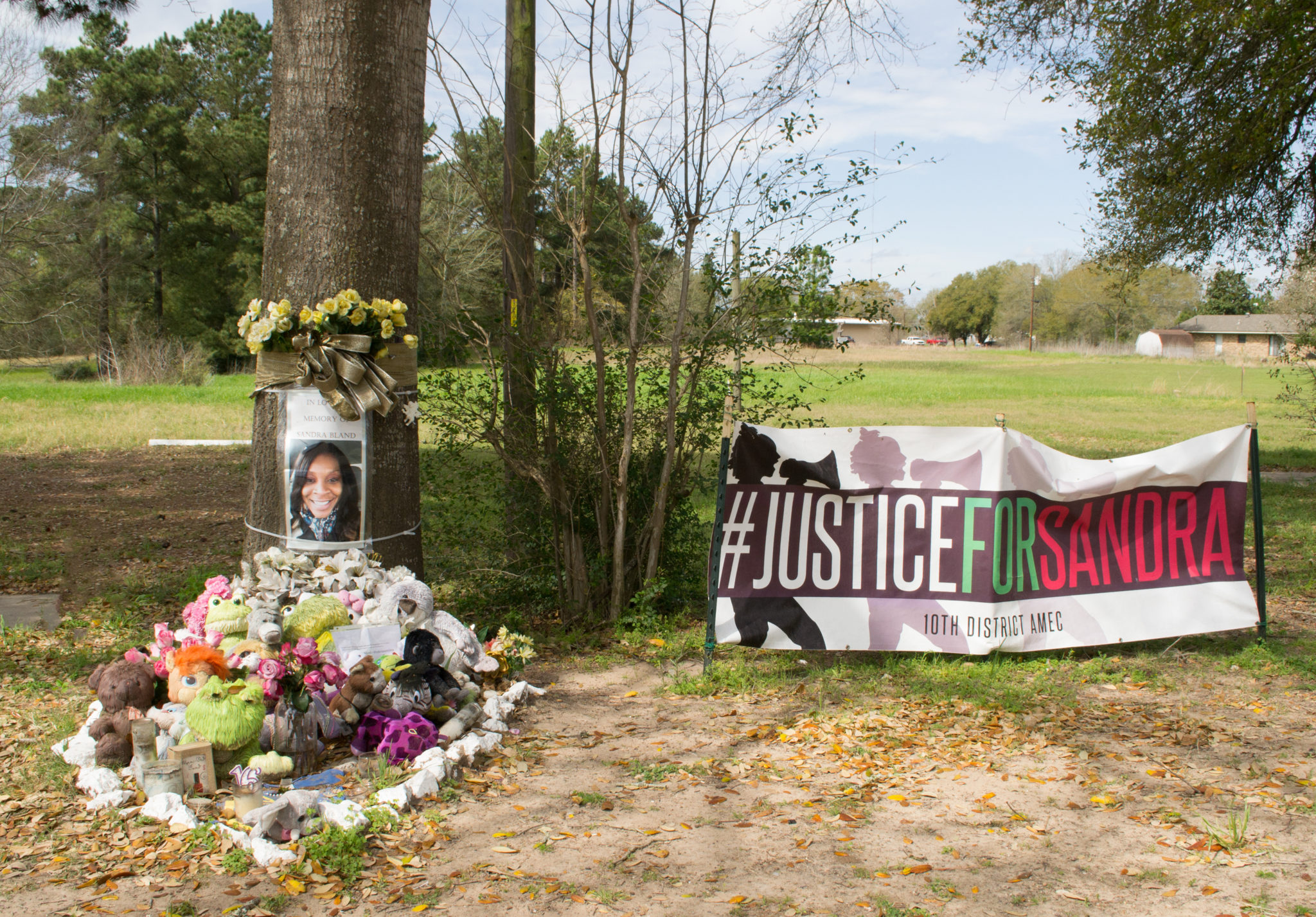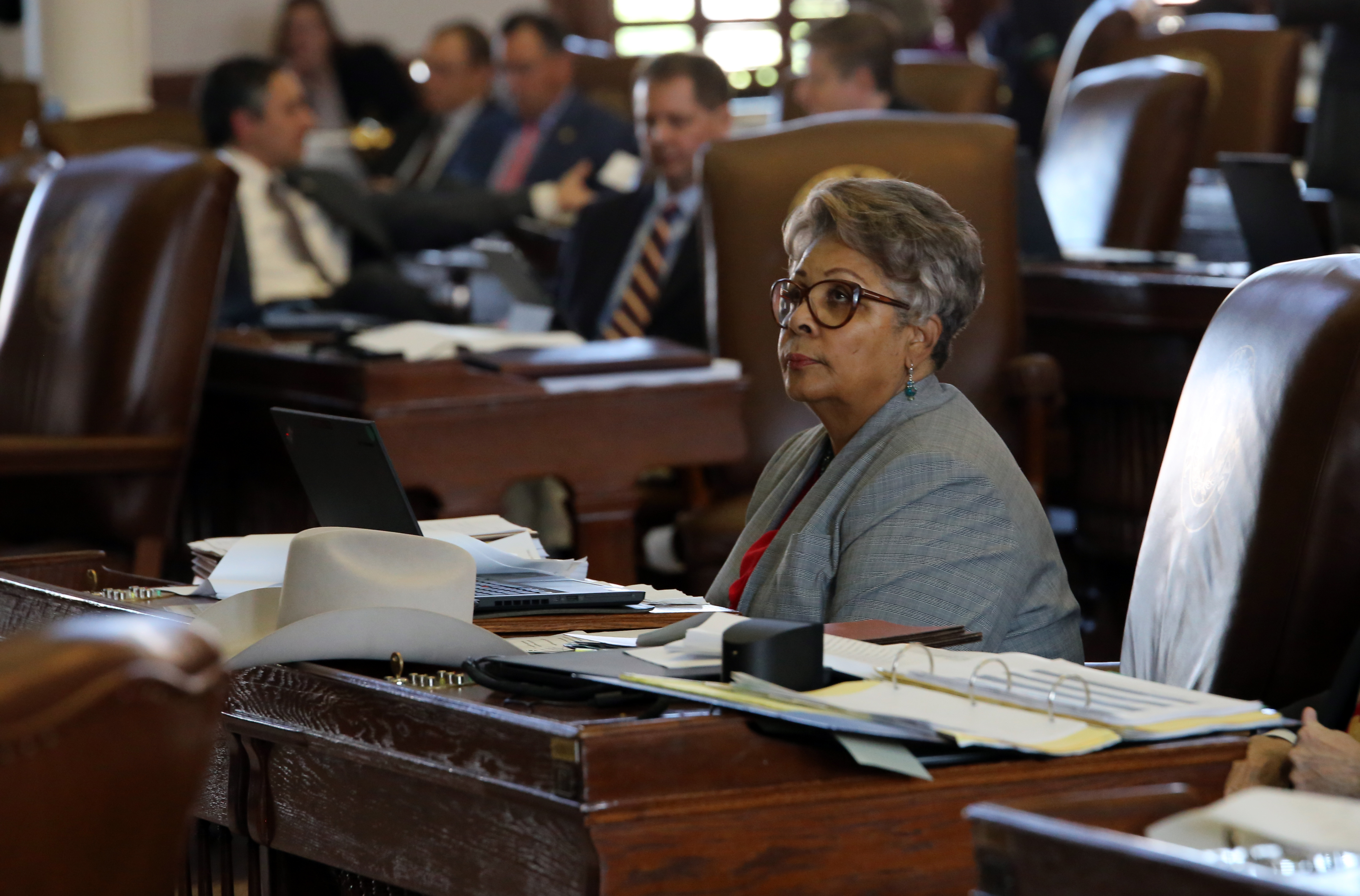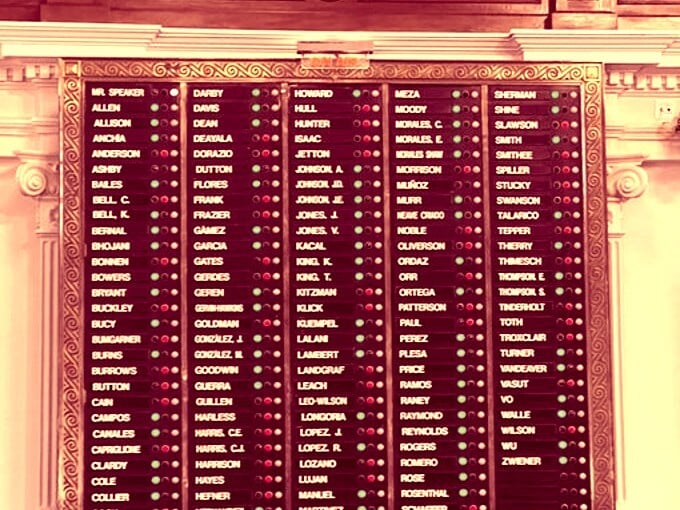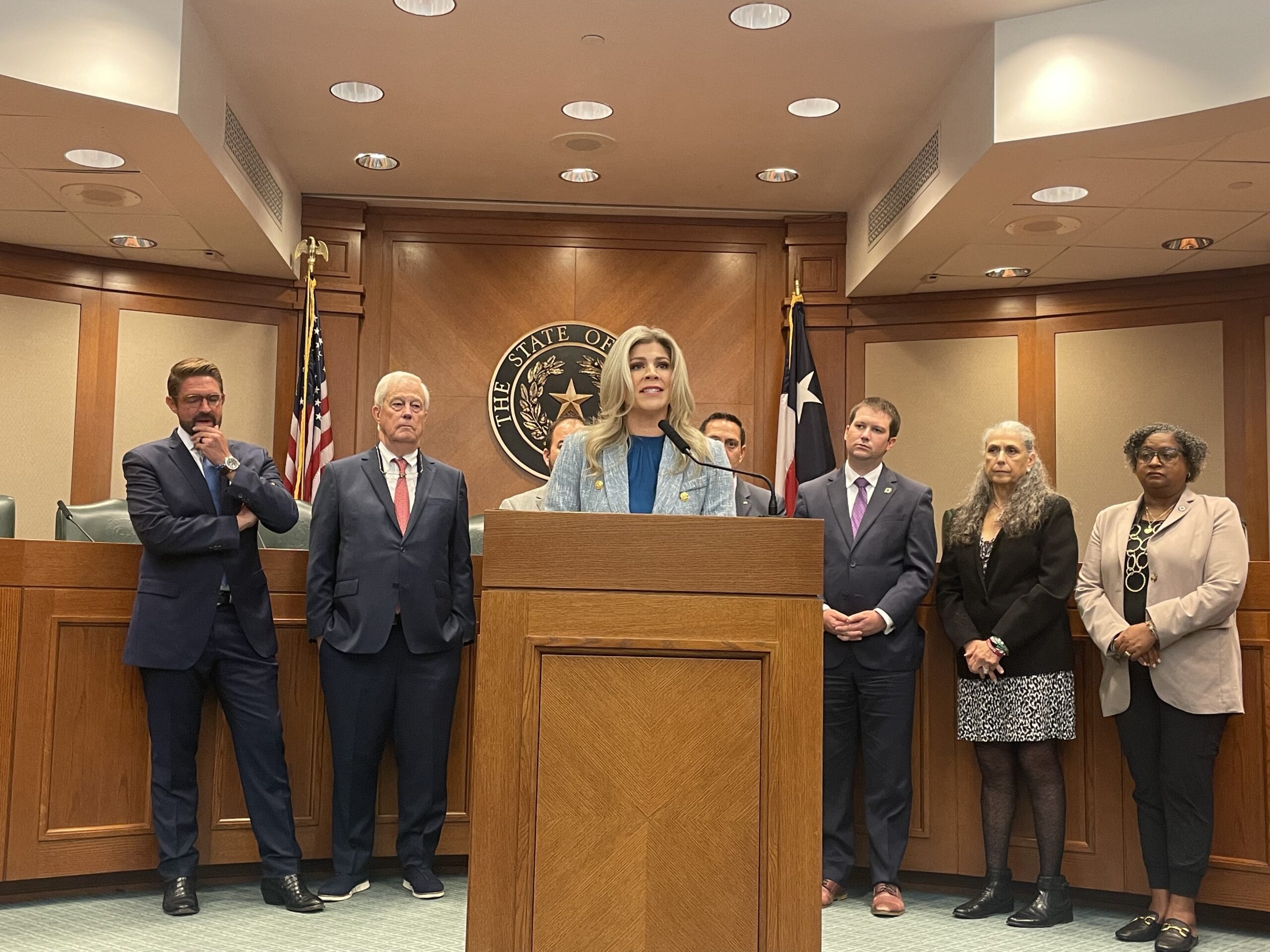
The Sandra Bland Act Was Stripped of the Provision That Could’ve Prevented Her Arrest. Now It Has a Chance.
“I believe this is the legislative session that we come together, in bipartisan fashion, to pass a bill to prohibit this practice that can have life-altering consequences,” one lawmaker said.

On July 10, 2015, on a quiet road near Prairie View A&M University, a hot-headed state trooper stopped Sandra Bland for changing lanes without a turn signal. The simple traffic violation and Class C misdemeanor is supposed to be punishable only by fine, but the trooper didn’t like Bland’s questions (“I’m in my car, why do I have to put out my cigarette?”). So he pointed a Taser at her and barked orders until she got out of the car, then handcuffed her and threw her on the ground. “Really, for a failure to signal?” Bland asked. “You’re doing all of this for a failure to signal?”
Bland’s 2015 arrest and death in jail three days later, which authorities ruled a suicide, spurred Texas lawmakers to propose the Sandra Bland Act last session to prevent future tragedies. Before the law passed, however, police groups killed a provision that would have barred cops from arresting and jailing people for fine-only offenses. Bland’s family called her namesake legislation a “missed opportunity” that didn’t even address the root cause of her arrest.
Police arrest and jail people for Class C misdemeanors at an alarming rate; it’s the sixth-most common charge for Texans in jail.
Texas lawmakers may finally strengthen the Sandra Bland Act this year, due in part to a growing bipartisan consensus over certain criminal justice reforms. Texas law currently gives police discretion to arrest people for minor traffic violations and other nonviolent offenses, such as noise violations or littering, even though convictions for such offenses don’t carry jail time and are only punishable by fines. In a Wednesday hearing, conservative groups urged members of the House Homeland Security and Public Safety Committee to pass legislation limiting cops’ authority to arrest people for those offenses.
“The last session this body did some great work in passing the Sandra Bland Act,” said Randy Petersen, a senior researcher with the right-wing Texas Public Policy Foundation. “This completes that work.”
The measure, House Bill 482, by state Representative Senfronia Thompson, D-Houston, is one of several that may have a shot at clearing the GOP-dominated Legislature this session. Ending Class C arrests, decriminalizing marijuana possession and ending debtors prisons are all now planks in the Texas GOP platform, thanks largely to criminal justice reform groups that lobbied the state party convention last summer.
Testimony before Wednesday’s public safety committee was overwhelmingly in favor of the proposal to limit police discretion over Class C arrests. Opposition from law enforcement groups has quieted since Thompson’s office made the bill more palatable for police by creating exceptions that would still allow cops to arrest people for public intoxication, Class C assault or in situations where someone presents “a clear and immediate danger.”

Still, the state’s largest police union, the Combined Law Enforcement Associations of Texas, vehemently opposes the measure. Chris Jones, the group’s training coordinator, told lawmakers, “You’re gonna take a significant tool away from us to do our job.” He pushed the longstanding lie that police arrested Oklahoma City bomber Timothy McVeigh for a traffic violation (it was because of an illegal firearm). Jones, a former Houston police officer, told lawmakers, “There have been times that I have arrested folks on traffic violations because I knew, the hair stood up on the back of my head, the kid in the back seat wasn’t right.”
A report released this week by the equal justice group Texas Appleseed shows that police arrest and jail people for Class C misdemeanors at an alarming rate; it’s the sixth-most common charge for Texans in jail. Traffic-stop arrests like Sandra Bland’s are more violent in some cities than others. Recent number-crunching by Scott Henson, a criminal justice researcher and author of the widely read Grits for Breakfast blog, shows Austin police are more likely to use injury-causing force during traffic stops than cops in any other large Texas city. Maybe that shouldn’t be surprising given what happened to Breaion King, who, like Bland, was ordered out of her car and slammed to the ground during a routine traffic stop because police didn’t like her tone or her questions.
Thompson called traffic-stop arrests a growing problem, one that she hopes the Legislature will finally address this session. “I believe this is the legislative session that we come together, in bipartisan fashion, to pass a bill to prohibit this practice that can have life-altering consequences for those who unnecessarily end up in jail,” she said in a statement. “Ending this practice will free up time for police to attend to serious crimes.”


